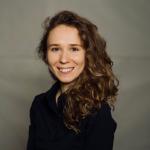Seminar description
The ongoing armed conflict in eastern Ukraine, that started in 2014, has involved various non-state actors. This research explores the roles civil society organizations play in the conflict environment. The object of the study is Ukrainian military volunteer groups, formal and informal civil society organizations, that provide supplies to the Ukrainian armed forces.
Initially, due the state’s lack of warfare preparation, the Ukrainian military volunteer movement emerged as a rapid response to the needs of paramilitary and regular armed forces, undertaking the conventional security function of the state. Within the several years of a protracted conflict, military volunteers continue to assist the armed forces with material provisions, despite decreased urgency for the supplies. This study aims to explore the narrative of the military volunteers, as a non-state actor that continues to be involved in the conflict dynamics.
First, I examine whether the activities of the volunteers have undergone any changes, and if so, how their work has transformed. Then, the relations between volunteers and other actors involved in the conflict are analyzed. Lastly, I explore the motivations of military volunteers to keep their involvement in the protracted conflict.
Supply provision to the armed forces is not considered to be a conventional civil society role in the conflict, as opposed to peacebuilding initiatives. The study seeks to expand the existing theoretical and empirical knowledge on the capacity of civil society in the context of a protracted armed conflict by providing insights on how Ukrainian military volunteers organize their activities.
About the speaker
Roksolana Lavrinenko has recently defended her PhD dissertation at the University of Tsukuba in Japan. Supported by the Honjo Foundation grant, her doctoral research focused on the role of formal and informal civil society organizations in the conflict in eastern Ukraine. Roksolana holds a Masters degree in International Area Studies from the University of Tsukuba as well as a Bachelors degree in Japanese Philology from Kyiv National University, Ukraine.
During her graduate studies in Japan, she worked as a teaching and project assistant at the University of Tsukuba and a Junior Fellow at the United Nations University in Tokyo. She speaks Ukrainian, Russian, English, Japanese and French.




